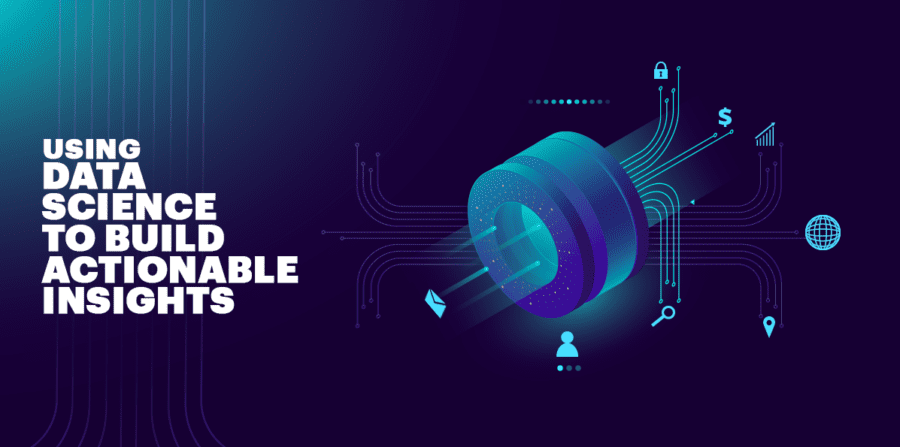What does the customer want? And why do they want it?
These are the age old questions that marketers have tried answering to improve their business impact. Customer knowledge is, without doubt, the foundation of marketing success.
Understanding customer behaviour is now increasingly accessible to marketers, thanks to big data. Categorised or uncategorised, digital or non-digital data, it is all available on a company’s servers; data stored in clouds as well as saved bookmarks.
Kirill Eremenko, the founder and CEO of SuperDataScience, aptly sums up the significance of data science and how it can empower marketing, “the most powerful data scientists are those who act as bridges between insights and people.”
Optimising selling strategies with big data
Big data brings a lot of exciting possibilities when it comes to marketing. Take sales strategies, for example. Organisations can now tailor their offerings to better suit different types of customers. The ‘Customer lifetime value model’ allows data scientists to segment customers based on their behaviour patterns and frequency of purchases. To determine which advertising channel is effective for which segment, the data scientists use a ‘time series model.’ They compare the effectiveness and relevance of various advertising channels – television, social media, and print, for improved audience targeting.
Netflix is one such company, where big data has played a prominent role in making it the king of streaming. The colossal Indian smartphone – nearly 500 million users – has led to an explosion of access to the internet. Currently, India is the second largest internet market globally. To cash in on this lucrative market, big data helps Netflix determine which shows will be more appealing and capture the interest of different customers. Targeted content engagement and recommendations based on consumer data influences 80% of the content we watch on Netflix.
For each user, Netflix analyses searches, viewing dates, where they paused shows, the devices they used, etc. All this behavioural data and user insights help Netflix come up with suitable and effective selling strategies. This type of user engagement tracking also helps them improve the customer experience.
Customer Responsiveness and Insights
Another interesting outcome of big data is the way it has revolutionised companies’ responsiveness towards customers. Customers have various channels to connect with brands. Customer interaction with brands provide insights on preferences. These insights help the customer service representative offer enhanced service. For example, Southwest Airlines employs speech analytics to pull data-rich information from live-recorded interactions between customers and personnel to understand their customers better.
Human Resources
Enterprise companies are always seeking qualified talent. Often, recruiters receive hundreds of resumes per open role. When shortlisting candidates for interviews, they use various data points such as filtering out candidates with too many or too few years of experience. Beyond this level of filtering, many companies are using AI chatbot software for recruitment. For example, Accenture uses Min, an AI virtual recruiter to hire data scientists in Singapore. This helps recruiters save time, improve efficiency, and make fair hiring decisions. For candidates, the chatbot engages, interviews, and shortlists them 24/7.
Enhanced Content Engagement
Identifying customer pain points and solving them in a time-effective manner is now facilitated by the power of big data. The Delta Airlines app now has a new feature called ‘Track My Bag’ which helps passengers keep tabs on their luggage as it makes its way to the final destination.
Actionable Insights
Big data is about finding patterns and meaning within large quantities of seemingly unrelated data. In the report ‘Why Creativity Matters More in the Age of Mobile’, Facebook puts forth that since mobile data consumption has become non-linear, there has been a shift in data generation providing new levels of insight.
‘Hypothesis-driven insights’ – a preliminary trial and error method – allow marketers to test their marketing campaigns based on the audience centric data. The data derived from CRM, surveys and panels can be used to develop hypothesis and drive real business results and increase effectiveness of the campaigns.
There is no shortage of data. According to the 2014 report by Economist Intelligence Unit: ‘Who’s Big on Big Data’, “Customer insights and targeting are currently the highest priority for the application of big data – cited at 42%, followed by financial planning at 32%, and sales at 29%.”
The magic lies in the decoding. Once an organisation can master this particular skill, the possibilities are infinite.
References
- http://www.thewindowsclub.com/what-is-big-data
- https://insidebigdata.com/2018/01/20/netflix-uses-big-data-drive-success/
- https://venturebeat.com/2014/04/21/5-ways-big-data-is-helping-companies-help-their-customers/
- https://www.analyticsindiamag.com/how-data-science-is-disrupting-the-world-of-marketing/
- https://www.analyticsindiamag.com/how-netflix-can-leverage-social-media-to-capture-the-indian-market/
- https://www.analyticsindiamag.com/how-netflix-is-using-big-data-to-catch-up-with-its-indian-vod-competitors-hotstar-and-amazon-prime/
- https://www.accenture.com/in-en/understanding-data-analysis
- https://www.forbes.com/sites/steveolenski/2018/03/06/data-science-is-the-key-to-marketing-roi-heres-how-to-nail-it/#79abc72d31c3

